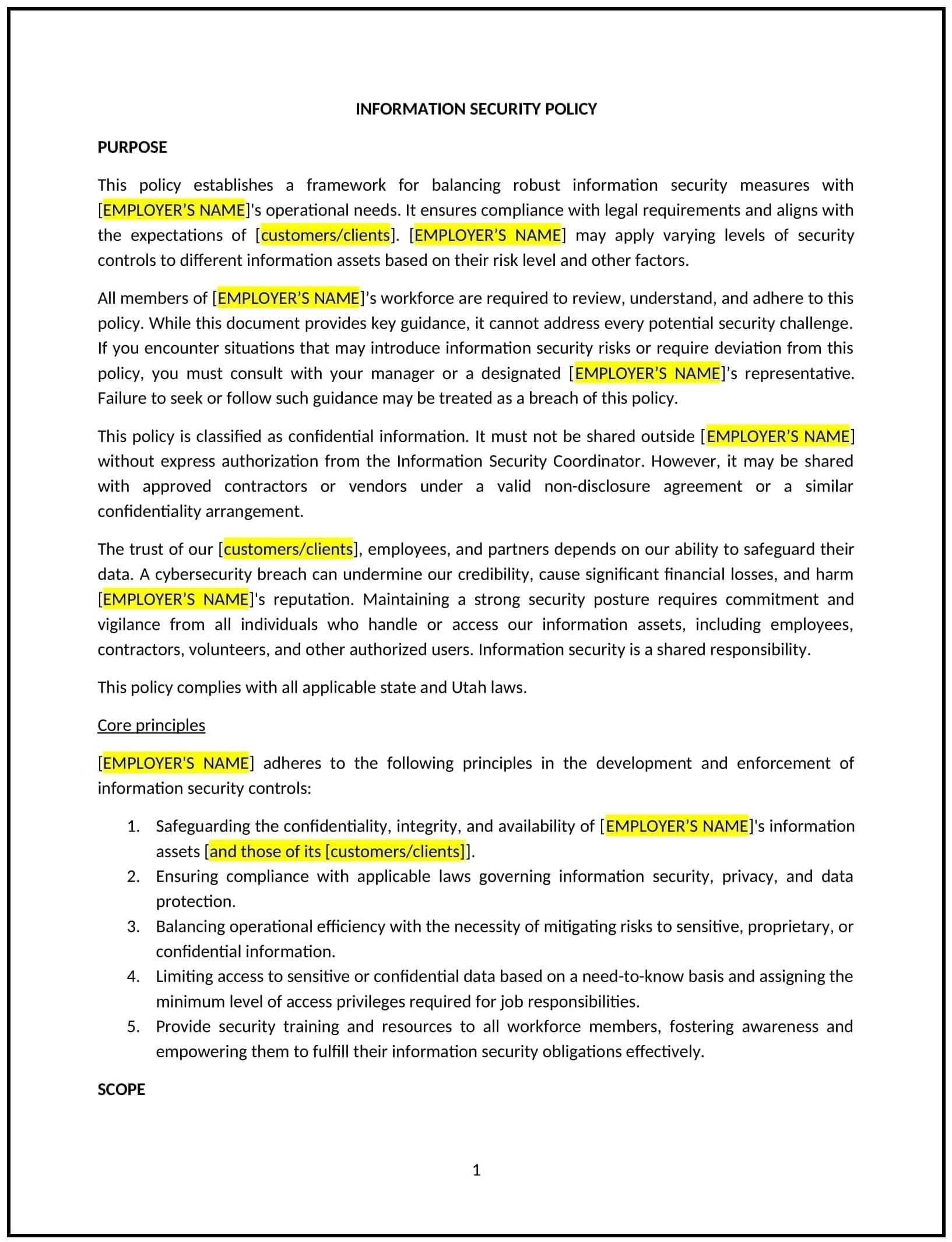Got contracts to review? While you're here for policies, let Cobrief make contract review effortless—start your free review now.

Customize this template for free
Information security policy (Utah)
This information security policy is designed to help Utah businesses establish guidelines for protecting sensitive data, such as customer information, employee records, and intellectual property. It outlines procedures for data access, storage, and disposal to prevent unauthorized access or breaches.
By adopting this policy, businesses can safeguard critical information, reduce cybersecurity risks, and align with general best practices for data protection.
How to use this information security policy (Utah)
- Define sensitive data: Specify the types of data covered by the policy, such as personal information, financial records, or trade secrets.
- Establish access controls: Outline procedures for granting and revoking access to sensitive data based on employee roles.
- Implement security measures: Provide guidelines for securing data, such as encryption, firewalls, and multi-factor authentication.
- Address data storage: Specify secure methods for storing data, including physical and digital storage solutions.
- Outline disposal procedures: Define secure methods for disposing of data, such as shredding or digital deletion.
- Train employees: Educate employees on data security best practices and their roles in protecting sensitive information.
- Monitor compliance: Regularly review data security practices to ensure adherence to the policy.
- Review and update: Assess the policy annually to ensure it aligns with evolving cybersecurity threats and business needs.
Benefits of using this information security policy (Utah)
This policy offers several advantages for Utah businesses:
- Protects sensitive data: Reduces the risk of data breaches, leaks, or unauthorized access.
- Aligns with legal standards: Helps businesses comply with data protection laws, such as the Utah Consumer Privacy Act.
- Reduces legal risks: Minimizes the potential for penalties, lawsuits, or reputational damage related to data breaches.
- Enhances trust: Builds confidence with customers, partners, and stakeholders by demonstrating a commitment to data security.
- Supports business continuity: Ensures critical information is protected, reducing the risk of operational disruptions.
Tips for using this information security policy (Utah)
- Communicate the policy: Share the policy with employees and include it in the employee handbook.
- Provide training: Educate employees on data security best practices and their roles in protecting sensitive information.
- Monitor compliance: Regularly review data security practices to ensure adherence to the policy.
- Address issues promptly: Take corrective action if data security breaches or violations occur.
- Update regularly: Assess the policy annually to ensure it aligns with evolving cybersecurity threats and business needs.